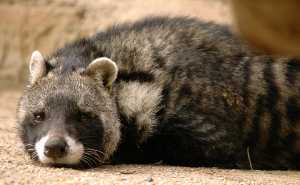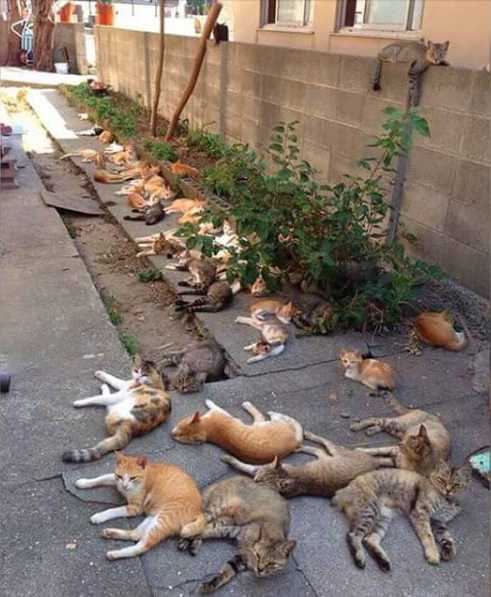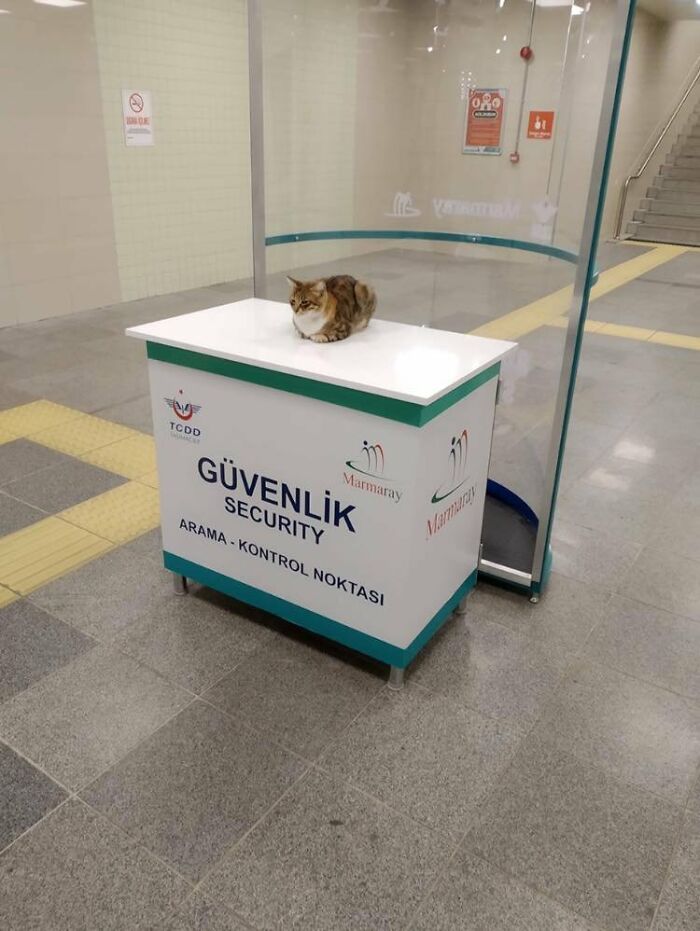CIVET ABSOLUTE. I regularly go to industrial food shows. A big one is coming up in January. That’s where I get to meet chocolate processors and their technical experts. When I come back from these shows, people sometimes ask me: “What was the most disgusting thing you saw at the show?” Well, there are a lot of terrible ingredients in commercially processed foods, but for me, the most repulsive food additive is an artificial flavoring called civet absolute. It is used to give candy a caramel, butter, or rum flavor. Civet absolute is a secretion produced by African civet cats to scent mark their territory. Civet absolute is scraped out of the anuses of civet cats. (Yes, you read that right.) This oily secretion is collected twice a week. The cats have to be sedated first because the scraping is so painful. Civet absolute has a very powerful odor. In full strength, civet absolute just smells like cat urine, but when diluted to 1/10 of 1% or less, it smells wonderful! I once smelled it myself at a food trade show. It smelled like sweet butter with a slight scent of lily. I felt ashamed of myself afterward, thinking about the suffering of those poor, miserable cats.
 Several years ago, I saw an orthodox rabbi at one of these wholesale food shows working at the booth of a kosher certifying organization. I asked him if civet absolute is kosher. The rabbi gave me a stern look. I never forgot his answer. He said: “You can’t make kosher food out of something that came out of a cat’s rear end.” He looked angry, as though he was mad with me for asking the question. Because civet absolute is very expensive, most candy makers now use civetone instead. It’s synthetic version of the real thing. Today, most civet absolute is purchased by cosmetic companies. Some of the world’s most expensive perfume contains civet absolute. Under pressure from animal rights groups, some department stores are now refusing to sell perfume containing civet absolute.
Several years ago, I saw an orthodox rabbi at one of these wholesale food shows working at the booth of a kosher certifying organization. I asked him if civet absolute is kosher. The rabbi gave me a stern look. I never forgot his answer. He said: “You can’t make kosher food out of something that came out of a cat’s rear end.” He looked angry, as though he was mad with me for asking the question. Because civet absolute is very expensive, most candy makers now use civetone instead. It’s synthetic version of the real thing. Today, most civet absolute is purchased by cosmetic companies. Some of the world’s most expensive perfume contains civet absolute. Under pressure from animal rights groups, some department stores are now refusing to sell perfume containing civet absolute.
CASTOREUM. Sadly, there are quite a few other food additives for sale at industrial food shows that are as repulsive as civet absolute, products like castoreum. Have you ever seen ‘The Angry Beavers’ TV show? Well, castoreum is probably what the beavers are angry about. Castoreum is used to make artificial strawberry and raspberry flavoring. It is a secretion produced by beavers to scent mark their territory. I like beavers. I think it’s fascinating to watch these small, industrious animals building enormous dams. I never get tired of watching busy beavers at work. At food trade shows, I sometimes look at the salesmen selling products like castoreum and civet absolute and wonder: “What kind of person would sell something like this for a living?” And – just in case you were wondering – No, I do not use civet absolute or castoreum! In fact, I never use artificial flavors or colors.
‘NATURALLY FLAVORED’ STRAWBERRY ICE CREAM.
 Before I leave the subject of castoreum, I would like to say something about the term ‘naturally flavored.’ You can find the words ‘naturally flavored’ on the labels of thousands of food products, but this term does not mean what most people think it means. ‘Naturally flavored’ just means that the flavor came from an organic source. If you buy cheap strawberry ice cream or raspberry sorbet, the odds are pretty high that it is flavored with castoreum. Don’t bother looking for the word ‘castoreum’ on the label. You won’t find it there. The government does not require food processors to tell you if a product contains castoreum, so none of them do. If you want real strawberries in your strawberry ice cream, beware of the words ‘naturally flavored’ on the label. Instead, look for the words ‘strawberry’ or ‘strawberry puree’ on the ingredients list. It’s usually the expensive brands, like Ben and Jerry’s and Haagen Dazs, that are made with real strawberries. So the next time you see cheap strawberry ice cream for sale in a supermarket, before you put it in your cart, ask yourself: “I do really want to eat ice cream that is flavored with beaver urine? Beaver urine!”
Before I leave the subject of castoreum, I would like to say something about the term ‘naturally flavored.’ You can find the words ‘naturally flavored’ on the labels of thousands of food products, but this term does not mean what most people think it means. ‘Naturally flavored’ just means that the flavor came from an organic source. If you buy cheap strawberry ice cream or raspberry sorbet, the odds are pretty high that it is flavored with castoreum. Don’t bother looking for the word ‘castoreum’ on the label. You won’t find it there. The government does not require food processors to tell you if a product contains castoreum, so none of them do. If you want real strawberries in your strawberry ice cream, beware of the words ‘naturally flavored’ on the label. Instead, look for the words ‘strawberry’ or ‘strawberry puree’ on the ingredients list. It’s usually the expensive brands, like Ben and Jerry’s and Haagen Dazs, that are made with real strawberries. So the next time you see cheap strawberry ice cream for sale in a supermarket, before you put it in your cart, ask yourself: “I do really want to eat ice cream that is flavored with beaver urine? Beaver urine!”
Would you like to know more or less about what is in the commercially processed foods that you buy? Would you like to know more so you make better choices, or is this information just too depressing to read about?





